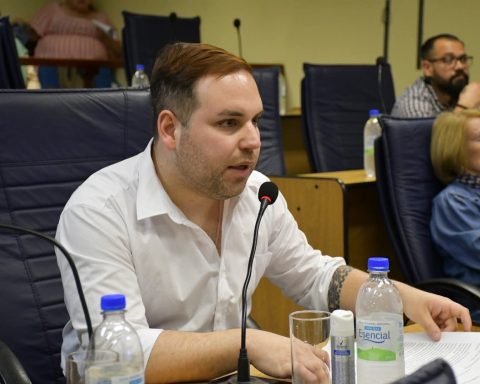
The president of New Development Bank (NBD) of the BRICS, Dilma Rousseffhas officially proposed the elected president of Uruguay, Yamandu Orsithe inclusion of the country in this international financial institution. This offering could mark a significant turning point in Uruguay’s international relations, as the NDB seeks to offer alternatives to traditional global financing institutions.
Uruguay was already approved as a member of the NDB by the bloc’s Board of Governors in 2021, although its integration was not formalized due to internal procedures under the government of Luis Lacalle Pou. Rousseff highlighted the strategic importance of having a Uruguayan presence in the bank, which could open new opportunities for collaboration and development in the region.
Implications of joining the NDB
The incorporation of Uruguay to the NDB represents an opportunity to diversify its international relations and strengthen ties with other emerging nations that make up the BRICS group, which includes Brazil, Russia, India, China and South Africa, as well as new members such as Egypt, the United Arab Emirates United States and Algeria. Rousseff stressed that, after the meeting with Orsi, the necessary approval processes must be completed at the institutional level to formalize the accession.
The minister of Economy and Finance of Uruguay, Azucena Arbelechehad already anticipated in September 2021 that Uruguay’s participation in the NDB would mean “a great opportunity for cooperation.” This inclusion is expected to facilitate access to financing for priority development projects in the country, in a context where access to capital continues to be a crucial issue for economic growth.
Background of the New Development Bank
The NDB was established as an alternative to traditional financial organizations, with the aim of financing infrastructure and sustainable development projects in member countries. Since its founding, it has sought to provide a space where developing countries can access financial resources without depending on the often restrictive terms of the International Monetary Fund and the World Bank.
The NBD was created in 2013 during the Fifth Summit of BRICS, and since then it has grown in number of members and financing capacity. With its headquarters in Shanghai, Chinathe bank has been designed to mitigate the effects of financial crises and foster development through financing focused on the needs of its members.
Opportunities for Uruguayan development
The eventual inclusion of Uruguay in this bloc could result in an increase in investment in strategic areas such as infrastructure, energy and technology. This is especially relevant given the current global context, where countries seek to diversify their financing sources in an increasingly interconnected world.
With Rousseff’s invitation, Uruguay could begin a new chapter in its international relations, allowing not only a more favorable access to financial resourcesbut also the possibility of participating in a constructive dialogue on development and cooperation with other BRICS nations. The signing of agreements and participation in joint projects are just some of the advantages that could arise from this alliance.
















